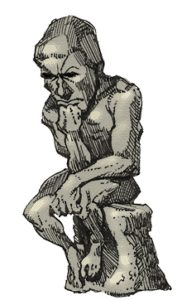Here’s a counter-intuitive idea: Great business to business brands know something essential about story that many B2C brands could benefit from learning.
I know. I know. Conventional wisdom is that B2B and story are like oil and vinegar. They don’t mix. B2B buyers aren’t swayed by emotion—they’re not like a consumer audience. They’re not motivated by branding. They’re more rational. So, B2B brands don’t do story.
The fact is that while many B2Bs may not focus on high-profile storytelling, the best understand something essential that can be easy to miss if you are distracted by the idea that brand story is only about advertising. I wish I could claim that insight, but it’s not mine.
“Story isn’t just about what you’re going to say—what commercial you’re going to make—it’s about influencing your strategy, your business, and your culture,” says Melissa Minihan, Head of Digital Commerce and Marketing at Veritiv Corporation. “Story is about defining how you make decisions differently than your competitors in a way that results in benefits for your clients. It’s not just a marketing template. It’s not just about what you are going to say to people to get them to buy from you.”
Melissa shared that idea with me in a recent conversation about her experiences using story in B2B versus B2C. She has a deep understanding of the topic, having led marketing and management at both very large B2C and B2B brands, including The Home Depot, Rubbermaid, STAINMASTER, Antron, Dacron, Lycra, and now Veritiv. If you are unfamiliar with the Veritiv Corporation, you are not alone. It’s one of the biggest B2B companies most people have never heard of, selling packaging, facility solutions, and print to everyone from Lululemon to Boeing.
“To me, a story framework actually works more to your advantage in a B2B business because you’re not creating commercials, you’re creating strategies—business and sales strategies—that frame what you are great at,” Melissa tells me. “And you are giving that to your inside sales team, your digital commerce team, or your actual ‘feet on the street’ sellers and they’re going out and telling that story so you’re getting more margin, or more share, or more of the things that they care about for their compensation, and we care about for our business metrics.”
From Melissa’s perspective, story in B2B provides a coherent way to answer the essential questions that define a B2B brand and how it matters to everyone, outside and inside the organization:
- What do we offer and why?
- What kind of people are we?
- What do we value?
- Why are we better than a competitor—especially one that offers the same, or similar goods or services?
“That’s what we’re trying to arm our salespeople with. Not just price, not just talking about supply chain,” Melissa tells me. In B2B, story isn’t about telling. It’s about articulating and showing the beliefs that define the organization in order to ensure that the story comes through in everything the business is and does.
You can watch the full conversation and get more insights and tips from Melissa in Character’s Fourth Campfire Story: B2B, Brand Story, and the Bottom Line. I’d also love to hear your experience or thoughts on the role of story in B2B.
